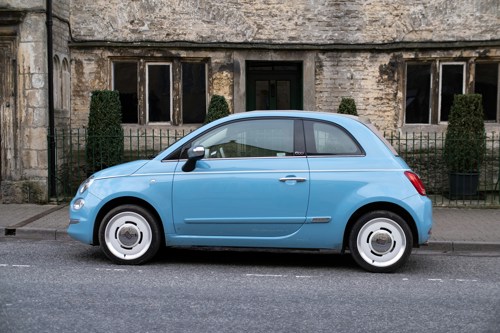
Curious about how car financing works? If purchasing a car outright isn't feasible for you at the moment, there are several avenues worth exploring.
Whether you're considering a loan or exploring leasing options, there's a range of approaches to fund your new car purchase. In this blog, we'll walk you through the basics of car financing, helping you understand the different options available.
How does financing for cars work?
It's fairly straightforward, with several approaches you might consider. One option is to take out a loan to finance your car purchase. In this scenario, you'd get the funds before shopping for and buying the car. Once bought, you would own it.
Alternatively, you could explore a leasing agreement, where you essentially rent the car for a specified period from a dealership. This would be arranged at the time of purchase and means you wouldn't own the car outright.
The most suitable finance option depends on your goals, the car's price, and your preference for ownership. Both options work similarly, with regular monthly payments being made until the debt is repaid. However, it's essential to consider the interest rates and fees associated with each option, as they can impact the overall cost of the car.
Can I get a car loan?
Yes, it's possible to get a loan for buying a car. However, eligibility depends on various factors, including your credit history and income. Lenders assess your ability to repay the loan, so having a good credit score and stable income can improve your chances of approval.
There are different types of loans available, each with its own criteria:
Unsecured/personal loans -
This type of loan doesn't require you to offer property or assets as security. It's handy for smaller loan amounts or if you don't want to use your home as collateral. However, if your credit score isn't great, getting approved might be tougher since lenders may view you as a higher risk without security.
Secured loans -
If you're having trouble getting approved for an unsecured loan, applying for a secured loan could be an option. With this type of loan, you offer your property as security. While this puts your property at risk if you can't repay, it can lead to larger loan amounts, longer repayment periods, and better interest rates. Since the loan sizes are usually larger, it may be more suitable for expensive car purchases.
Is a car loan a good idea?
Deciding whether a car loan is a good idea depends on your situation. Borrowing money always carries risks, so it's crucial to think carefully. It could be a good idea if you truly need the car, can't pay for it another way, and are confident you can make the payments on time. However, if you're unsure about affordability or financial stability, it might be better to wait until your situation improves.
Other types of car finance
When it comes to financing your car purchase, getting a loan isn't your only choice. Other avenues worth exploring are leasing arrangements like hire purchase and a personal contract plan.
Hire purchase
Hire purchases are typically arranged directly with the car provider. Here, you’ll pay a deposit upfront, and you'll agree on a monthly repayment plan with the dealership. So, each month you will have a set amount to repay. When the term comes to an end, the car will be yours to keep and you will be the owner.
However, it's important to note that in these agreements, the car serves as collateral, similar to how a property does for secured loans. So, if you fail to keep up with repayments, the car could be repossessed.
Personal contract plan (PCP)
A PCP functions similarly to a hire purchase, but it typically involves lower monthly payments. At the end of the term, you can return the car to the provider, exchange it for a new contract on a different car, or buy it with a final payment known as a balloon payment.
However, consider that by this time, the car's value may have decreased, and there could be signs of wear and tear. But, if you're happy with the car and want to keep it, this could be a feasible choice.
While both leasing options can be effective, it's important to ensure you're comfortable with the repayments before committing to any agreement. Defaulting on payments could lead to repossession of the car and damage to your credit score. These can be serious consequences, which may impact your ability to get finance in the future.
What is better a car loan or leasing?
Both options work similarly, but the main difference lies in ownership. With a loan, you own the car outright when you buy it from the dealership. On the other hand, in a leasing agreement, ownership happens only after you've finished paying off or made a final payment to buy the car.
Your choice depends on your preferences and what's most cost-effective for you. It's a good idea to research thoroughly before deciding to make sure you're happy and confident with the agreement you choose.
Can you get rejected for car finance?
Yes, it's possible to be declined for car finance. Lenders and dealerships want to ensure you can comfortably manage the repayments. If they're concerned about your ability to repay or believe it might strain your finances, they may hesitate to approve your application. This is because loans or leasing agreements come with risks, so they want to ensure it's the appropriate choice for you.
Summary
In summary, navigating car finance options involves understanding your preferences, financial situation, and the implications of each choice. Whether you opt for a loan, lease, or other financing method, it's crucial to weigh the benefits and risks carefully. Ensure you're comfortable with the repayment terms and consider seeking advice if needed.
Think carefully before securing other debts against your home. Your home may be repossessed if you do not keep up repayments on a mortgage or any other debt secured on it.




